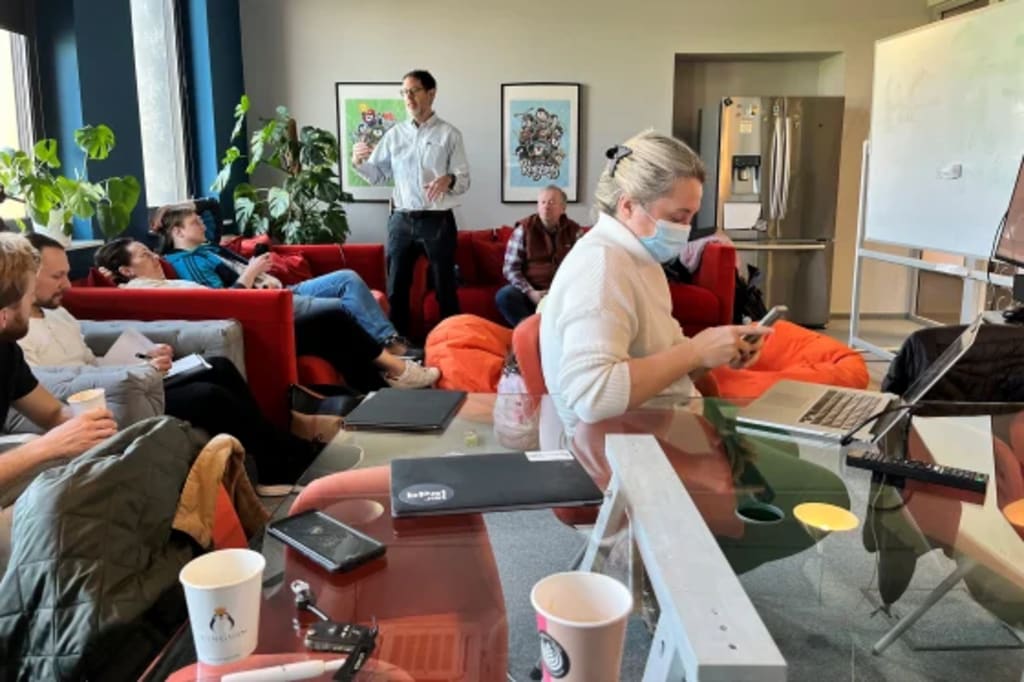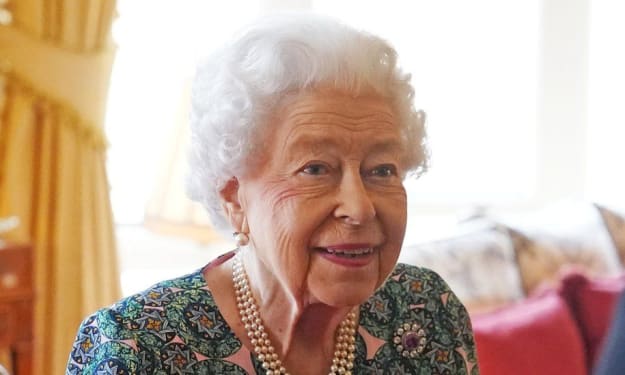
WARSAW — Six weeks ago, Aleksandra Petrykowska was a transactional lawyer in Warsaw on the fast track: She was a managing partner at a firm by her late 30s, who had spent her spare time studying for a Ph.D.
When war broke out in Europe, she walked away from all of it.
On the chilly February day that Russia invaded Ukraine, Petrykowska was in Venice and recalled feeling devastated that she wasn’t closer to home to try to help. Within days she was back in her Warsaw apartment, housing a Ukrainian woman and her child as refugees began pouring over the border. That was just the start.
“I quit everything,” said Petrykowska, who has stopped working in the corporate sector altogether.
Throughout Poland, an army of citizens has stepped up to offer spare bedrooms, spare cash and spare time to the roughly 2.5 million Ukrainians who have fled to Poland so far, offering more than any other country. But some Poles have gone further, putting thriving careers on hold indefinitely and throwing their professional and financial futures into uncertainty as they dedicate themselves full-time to helping Ukrainians.
WARSAW — Six weeks ago, Aleksandra Petrykowska was a transactional lawyer in Warsaw on the fast track: She was a managing partner at a firm by her late 30s, who had spent her spare time studying for a Ph.D.
When war broke out in Europe, she walked away from all of it.
On the chilly February day that Russia invaded Ukraine, Petrykowska was in Venice and recalled feeling devastated that she wasn’t closer to home to try to help. Within days she was back in her Warsaw apartment, housing a Ukrainian woman and her child as refugees began pouring over the border. That was just the start.
“I quit everything,” said Petrykowska, who has stopped working in the corporate sector altogether.
Throughout Poland, an army of citizens has stepped up to offer spare bedrooms, spare cash and spare time to the roughly 2.5 million Ukrainians who have fled to Poland so far, offering more than any other country. But some Poles have gone further, putting thriving careers on hold indefinitely and throwing their professional and financial futures into uncertainty as they dedicate themselves full-time to helping Ukrainians.In the war’s first days, Rybinski and a Polish tech entrepreneur teamed up to launch a new nonprofit organization, registered in Poland, with an initial goal of saving 100,000 Ukrainian children. The organization’s name is OGDM, which in Polish stands for “From the Border to the Flat.”
Now Rybinski spends his time arranging transportation and places to stay for refugees arriving at the Polish border, an operation that started with a few cars and drivers and has mushroomed into a coordinated network of around 1,500 volunteers. The organization is also working to transport medicine to those hospitals in Ukraine still operating.
The sacrifices everyday Polish citizens are making amount to “a great story about humanity,” U.S. Ambassador Mark Brzezinski told NBC News in an interview at the U.S. Embassy in Warsaw.
“You have a country that itself has been victimized over history, victims, former victims, going to the border to help victims,” Brzezinski said.
Not everyone can afford to put their careers — and their paychecks — on hold indefinitely. Poland’s government is giving families who host refugees 40 Polish zloty per day, per refugee — about $9.40 in U.S. dollars — in a country where the minimum wage is about $700 a month. Some have savings, others still have income coming in from past business endeavors while others try to make do with less.
Kuba Lang, a former private equity investor, ran his own software engineering firm before the war. To free up the time and funds to focus full-time on Ukraine, he convinced his business partners to buy him out.
Lang said he makes his finances work by combining a small stream of income from a former business with what he describes as a “limited lifestyle” with “small living costs” for him and his young daughter, Hannah. This week, he flew to Dubai, the first stop on an international tour to raise more funds for ODGM, which he co-founded with Rybinski.
During a visit to Warsaw to teach more than 1,200 Ukrainian students (supported by OGDM), Lang rolled up his sleeve to expose a six-digit number tattooed on his arm — his grandfather’s identification number from Auschwitz, one of seven Nazi camps he said his grandfather had been held in. Lang said that during World War II and its aftermath, Poland was left to fend for itself, which is why he felt compelled to come to Ukrainians’ aid.
Lang said that although he’d gotten “burn out” from working in finance, the sales and business skills he learned in the private sector guided his decisions in running OGDM.
“It’s back to the investment banking life, really,” Lang said, describing the nonstop pace and time demands of running an organization that was rapidly scaling up. “It’s long hours, but it’s 1,000 times more satisfying than anything I’ve done in my life.”






Comments
There are no comments for this story
Be the first to respond and start the conversation.